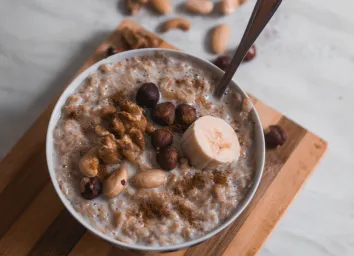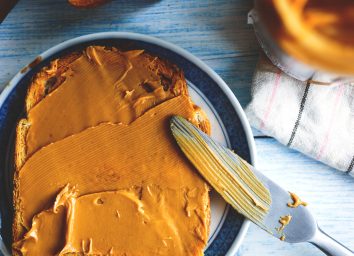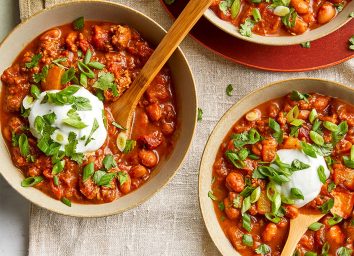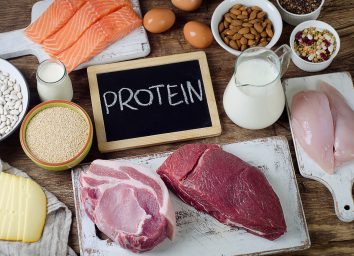Popular American Foods Making Your Inflammation Worse, Says Dietitian
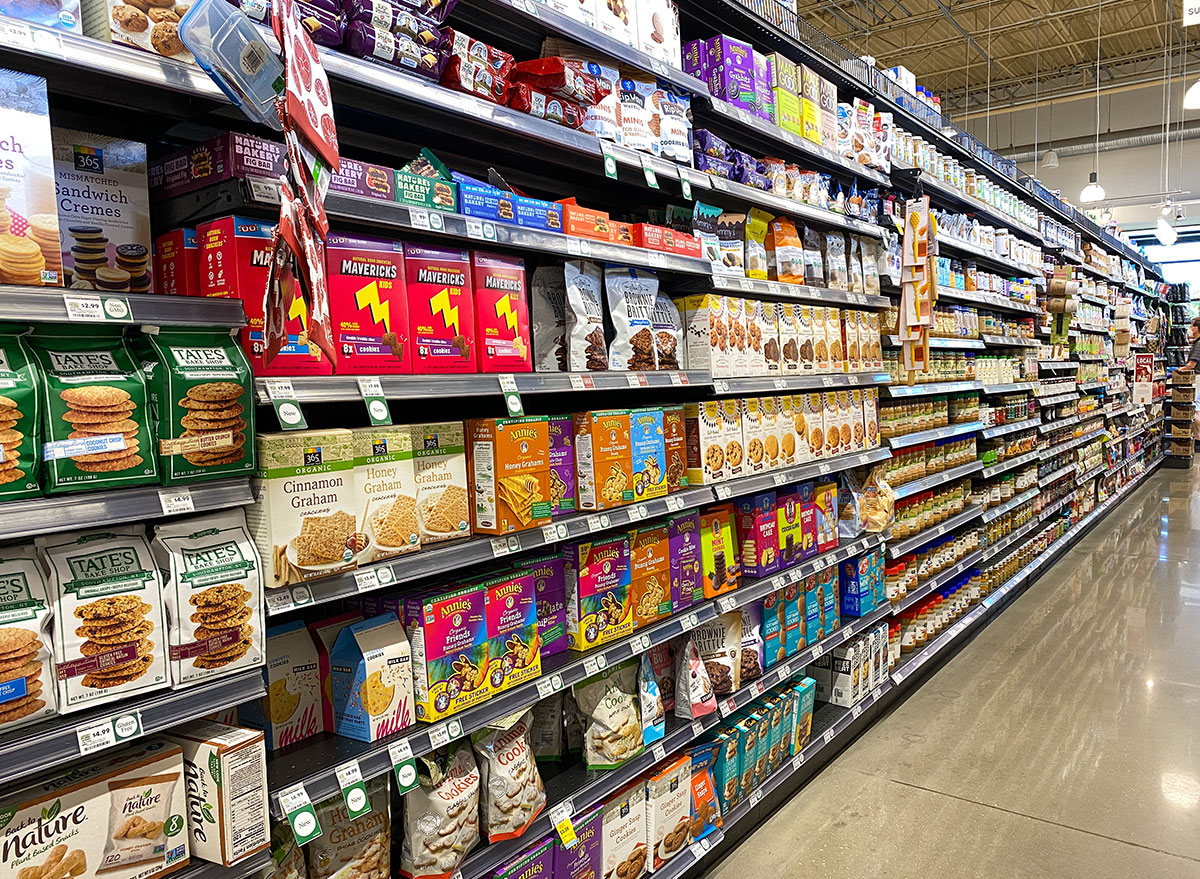
The word "inflammation" and the phrase "inflammatory foods" are currently buzzing like bees all around us in the health and wellness world. But what exactly does inflammation look like in your body and how can certain foods either help or hinder it?
Simply put, not all inflammation is bad. In fact, it's critical to our health and wellbeing, as it's a natural part of the body's defense system that encompasses a critical cascade of reactions that work to fight off disease and protect us from injury. Think of when you get a cut on your leg and it gets red and swollen. That's a sign that your body is releasing an inflammatory response to that area, which alerts your immune system to begin the healing process.
How can diet choices cause inflammation?
However, when it comes to food and nutrition, certain lifestyle habits and diets can either precipitate or prevent overall inflammation in our bodies. For example, you may be sensitive to certain foods, and that can trigger signals that something foreign has entered your system. This type of inflammation can oftentimes be uncomfortable and even debilitating for some people and can manifest in different ways both inside and outside of our bodies. Common symptoms range from redness, swelling, rashes, and pain, to gastrointestinal distress, headaches, fatigue, and more.
Our modern food supply in this country is laden with packaged processed foods that are typically high in added sugar and devoid of nutrients. Pair a junky diet with a sedentary lifestyle and an abundance of stress and it's no wonder that, over time, our bodies progress into a state of chronic inflammation that can cause a metabolic storm and make us sick.
With the help of fellow registered dietitian and certified personal trainer Robin Barrie Kaiden MS, RD, CDN, of Robin Barrie Nutrition, here are five examples of popular foods in the American diet that are common culprits for initiating—or aggravating—inflammation in our bodies.
Sugary foods
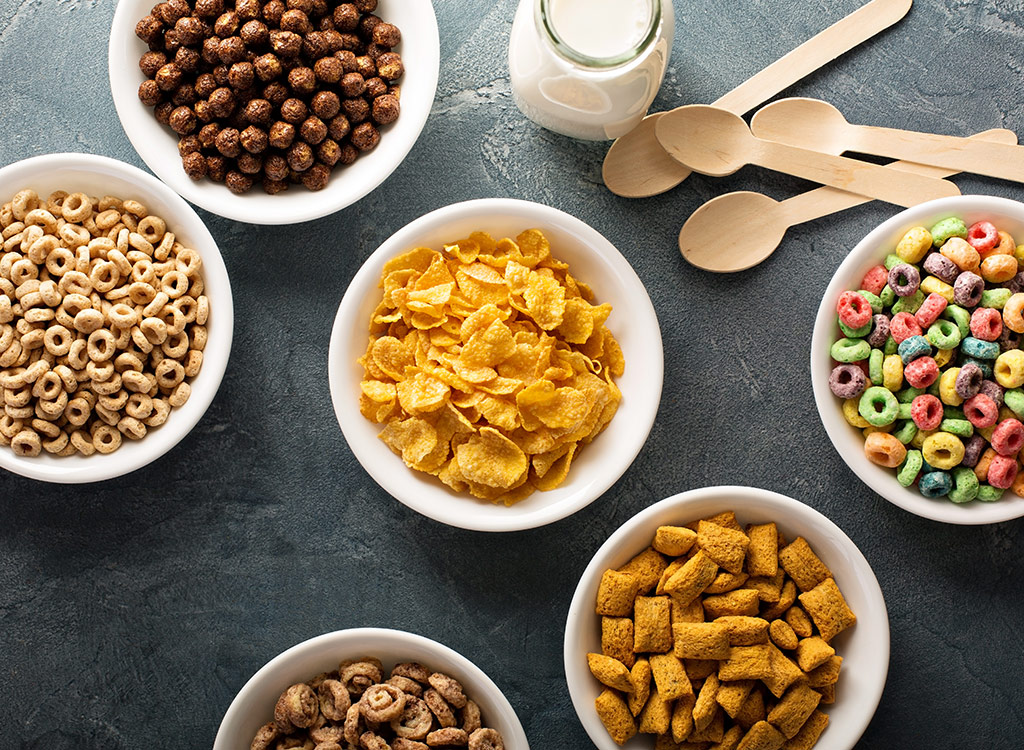
Let's set the record straight—the American diet screams sugar. Research shows that a high-sugar Western diet wreaks havoc on many systems in our body and is evidenced by insulin resistance and increased inflammatory markers. If you take a walk through just about any supermarket in this country, you'll be bombarded with aisles of boxed and bagged cookies, crackers, chips, colorful cereals, candy, and loaves of bread that can last on a shelf for months.
"Many snack foods use words like 'organic' and 'natural' and present themselves in a healthy package," Kaiden adds. "One look at the ingredient list tells a different story."
It makes sense: they're convenient and they appear healthy, so we continue to buy them even though they're actually secretly packed in added sugars.
Refined grains

This example falls into a similar category as sugar due to a diet with an abundance of processed foods, many of them comprised of refined grains. The prevalence of refined grains in our diet may explain why so many people become intolerant to wheat or all gluten which is a protein found in certain grains. Studies show that a diet rich in whole grains, as opposed to one that's full of refined grains, can reduce systemic inflammation.
Don't miss Dangerous Side Effects of Eating White Bread, According to Science!
Fried foods
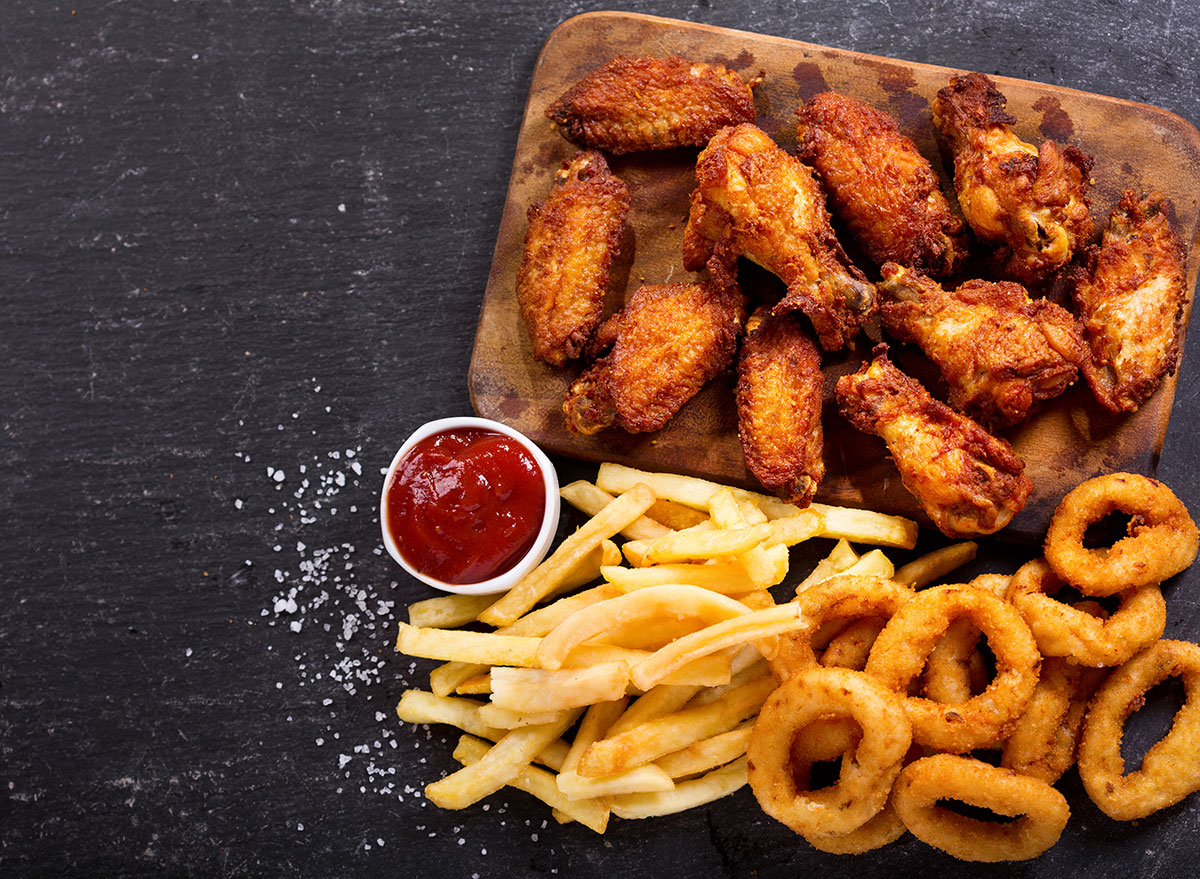
Fried foods are like a double whammy when it comes to promoting inflammation, as these foods are typically covered in white flour breading and then deep-fried. Studies show that fried foods can impact glucose management and prompt systemic inflammation. There is also significant evidence that suggests the chemical alteration that occurs to food when it's fried can aggravate symptoms of inflammatory bowel diseases like Crohn's.
Dairy
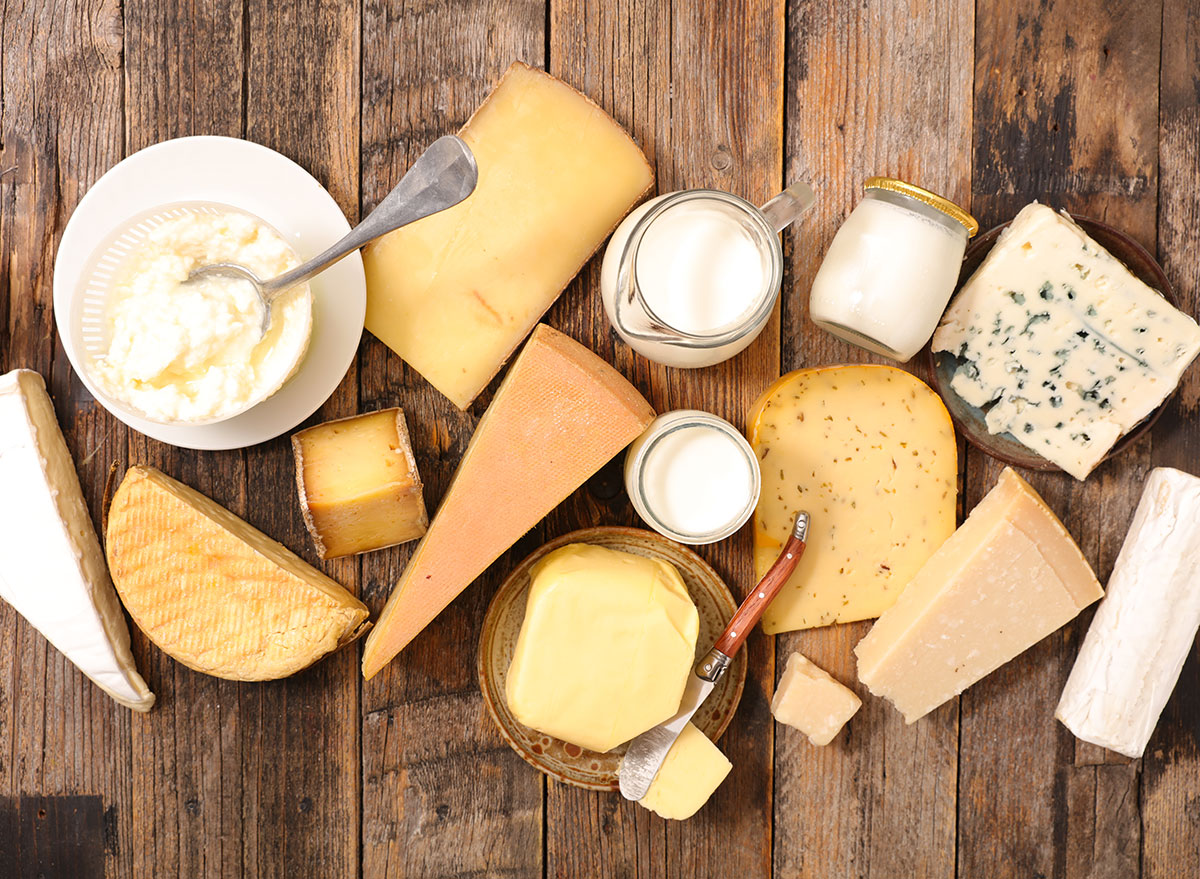
The alleged connection between dairy and inflammation always seems to be under debate.
Dairy can absolutely be a nutritious part of a balanced diet if you enjoy it, but it is an allergen to some people and can, therefore, trigger an inflammatory response. Lactose intolerance is different than an allergy because it means you lack the enzyme lactase to digest dairy. In a thorough review of research on this topic, I found that the evidence is inconclusive on dairy as a whole contributing to inflammation in the body. Keep in mind that it may also depend on the type of dairy you're consuming.
In general, there's a stark difference in the quality of certain dairy products, so I recommend choosing organic, low-to-no-sugar-added yogurts and beverages.
Vegetable oils.

"Not all oils are created equal," says Kaiden. "In fact, most products on the shelves like bottled salad dressings are made with safflower, sunflower, grape, vegetable, or soy oils."
These oils have a higher omega 6 to omega 3 fatty acid ratio and, although the research is mixed, some evidence suggests the omega-6, polyunsaturated fat linoleic acid promotes oxidative stress and chronic inflammation—especially when consumed in the form of vegetable oils. Kaiden adds that vegetable oils "are mostly processed from their plant sources using chemicals, making them even more inflammatory."
Bottom Line
As always, look at the big picture when it comes to your lifestyle and diet. The most significant improvements in inflammation and overall health will come from adjusting your habits instead of focusing on singular foods. If you suspect you are intolerant to specific foods, consider speaking to a medical doctor to help you identify whether or not you are actually sensitive to certain foods.
For more, be sure to check out The #1 Best Nut to Eat to Reduce Inflammation, Says Dietitian. Then, don't forget to sign up for our newsletter.
